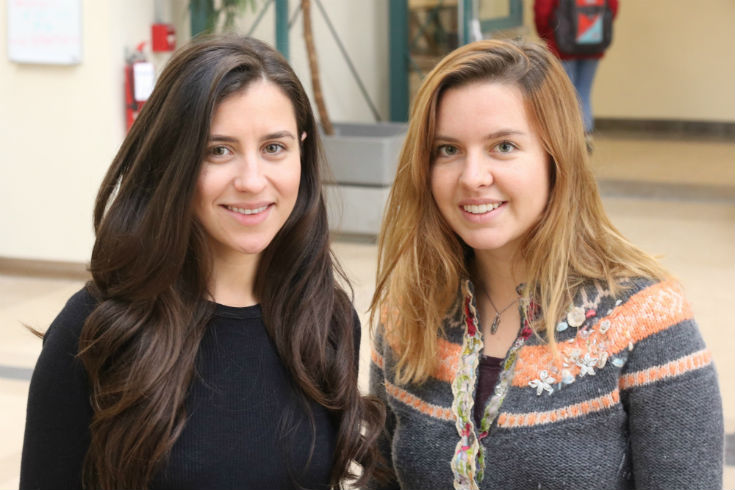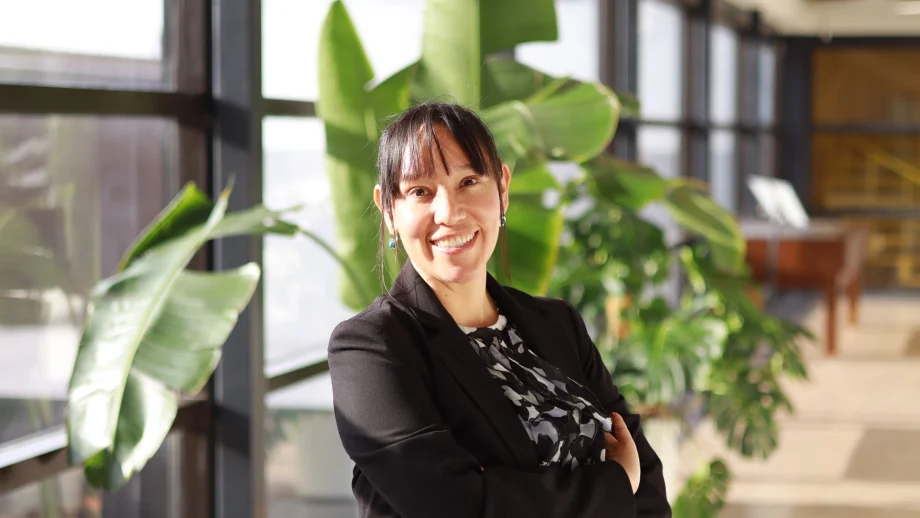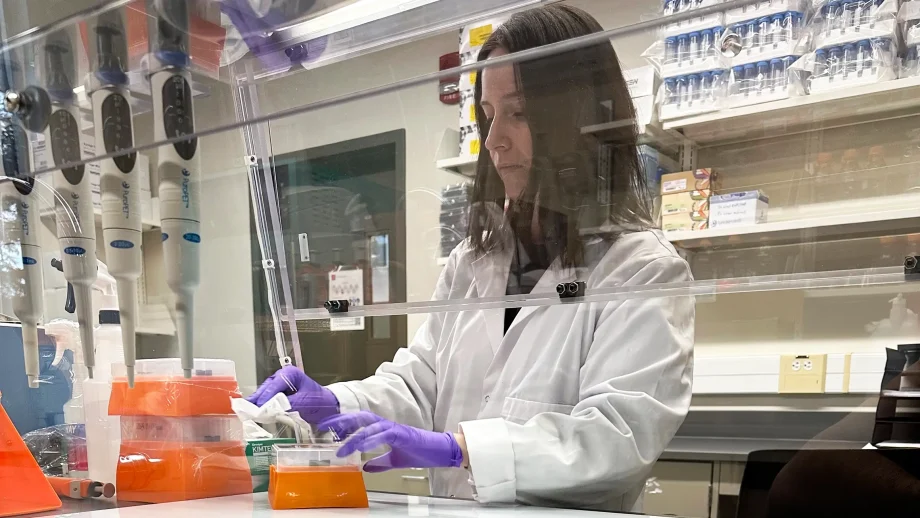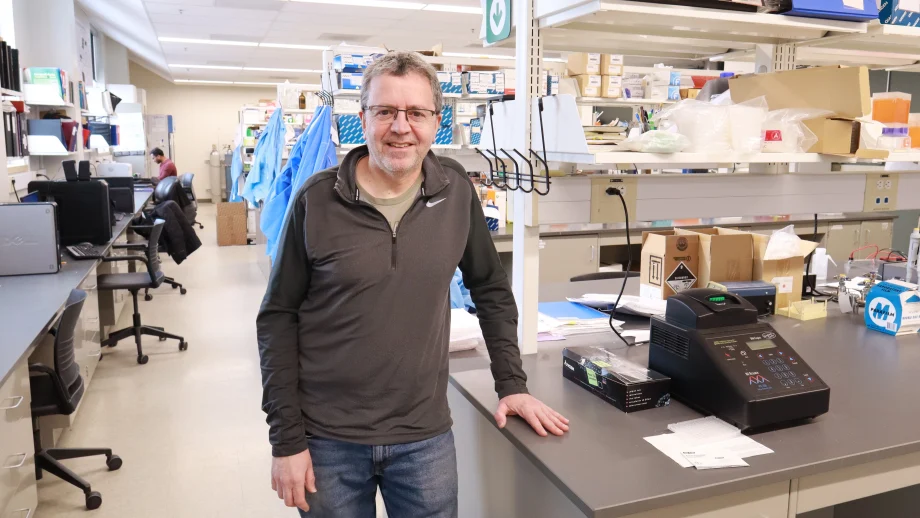
Simone Reis, Laura Cameron, ©UWinnipeg
Climate change, sustainability and accessibility are the focus of two new Social Science and Humanities Research Council (SSHRC) Graduate Scholars at UWinnipeg. Laura Cameron and Simone Reis have each earned a prestigious SSHRC scholarship, valued at $17,500, for their respective research.
Originally from Vancouver, BC, Cameron comes to UWinnipeg via McGill University with a BSc in biology and anthropology. She is currently working on her MA in Indigenous Governance with UWinnipeg’s Dr. Ian Mauro (geography) and Dr. Jacqueline Romanow (Indigenous studies).
As a SSHRC scholar, Cameron seeks to build relationships and understanding of Indigenous perspectives on climate change. She is working in close collaboration with Anishnaabe Elder Dave Courchene and the community of Turtle Lodge, an international Indigenous education and wellness center in Sagkeeng First Nation, Manitoba.

Laura Cameron, ©UWinnipeg
Cameron will be building on her previous experience at McGill in the areas of climate change, Indigenous studies, and community-based research with Dr. James Ford and the Climate Change Adaptation Research Group, as well as Dr. Catherine Potvin and the Sustainable Canada Dialogue.
“I was drawn to UWinnipeg to work with Dr. Ian Mauro,” said Cameron. “Our research team combines participatory research, documentary video, and interactive communication tools to bridge the gaps between Indigenous knowledge, science, and public perceptions and understandings on climate change.”
Reis recently graduated from UWinnipeg with a BA in classics (Hons), and is currently working on her MA in Cultural Studies on architecture and accessibility in museums. As a SSHRC Scholar, she will be working with the Manitoba Museum, Canadian Museum for Human Rights (CMHR) and the Winnipeg Art Gallery (WAG). Her goal for her research is to establish ways in which institutions can improve the museum experience by making it more inclusive.

Simone Reis, ©UWinnipeg
“My current research is mainly grounded in the ‘new museum’,” explains Reis. “By that I mean the ways
in which museum institutions are adapting to the 21st century by incorporating more technology and becoming more inclusive. I would like to understand the state of accessibility in some of the major museums in Winnipeg, the way they build or adapt architecture, and how the architecture of the museum impacts the opinions and experiences of people with disabilities.”
Reis’ research supervisor is Dr. Stephen Borys, Director and CEO of the Winnipeg Art Gallery and an adjunct professor and alum of UWinnipeg.
“I love Winnipeg,” noted Reis. “I think it is a fantastic city with amazing potential. I am constantly impressed with the trajectory of the arts and culture scene in Winnipeg, and I want to be part of that movement.”
The University of Winnipeg gratefully acknowledges the funding we receive from the Government of Canada Research Support Fund in aid of our research infrastructure.
Every year, the federal government invests in research excellence in the areas of health sciences, engineering, natural sciences, social sciences and humanities through its three granting agencies. The Research Support Fund reinforces this research investment by helping institutions ensure that their federally funded research projects are conducted in world-class facilities with the best equipment and administrative support available. Please visit our RSF webpage at uwinnipeg.ca/research.




